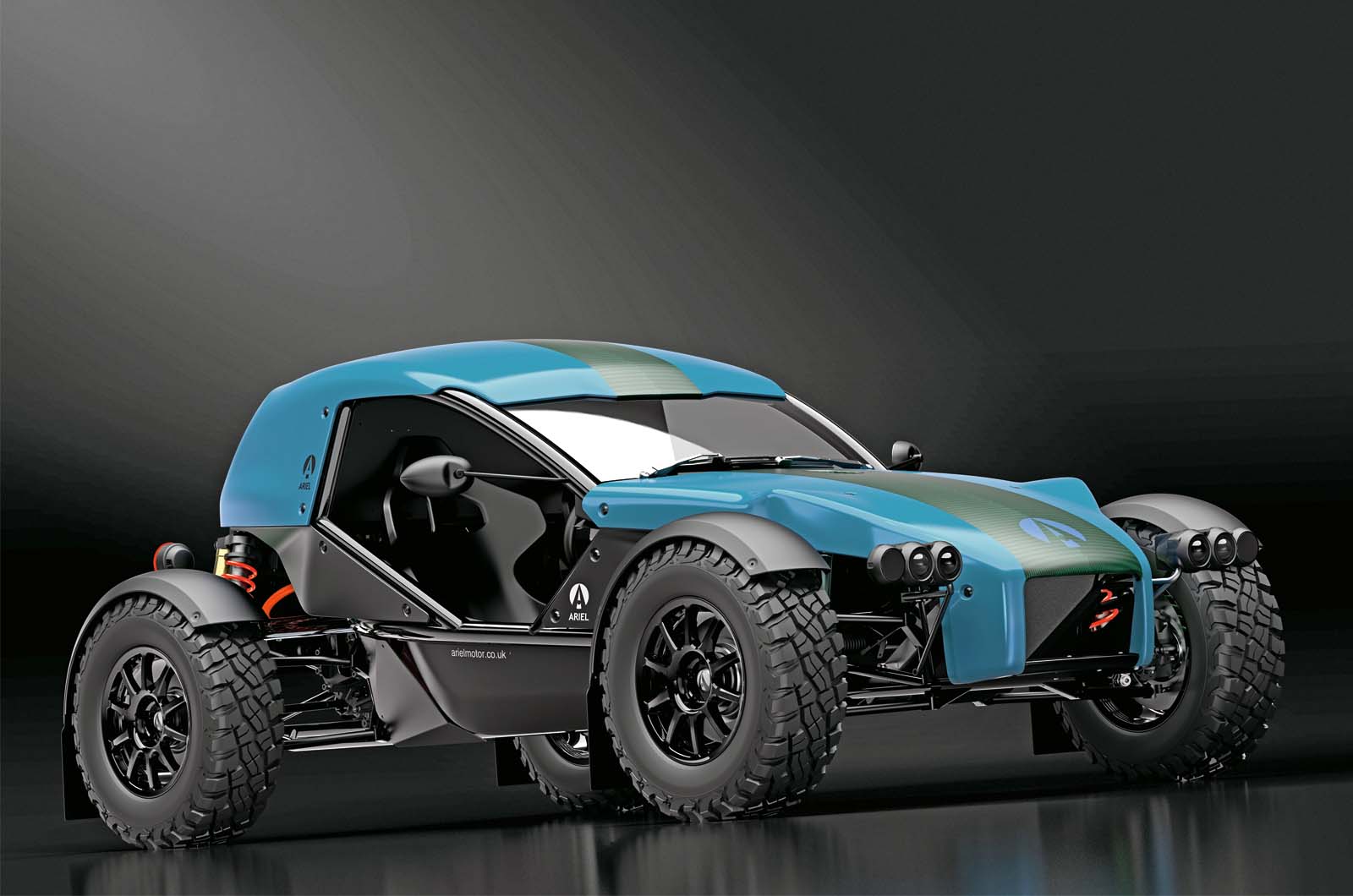Its powertrain consists of a Cascadia Motion iDM 190 drive unit that combines the motor, one-speed gearbox and inverter in a single unit, mounted just ahead of the driven rear wheels. The entire unit weighs only 92kg.
The advanced lithium ion battery pack and its tunable control software is designed specifically for the E-Nomad by Rockfort. The capacity of the 450V battery is 41kWh and it uses 12 Pegasus V3 modules, which are claimed to set new standards for energy density. The whole assembly weighs less than 300kg, one big reason why the E-Nomad’s kerb weight is a modest 896kg.
The battery, sited behind the rear bulkhead to optimise weight distribution and minimise cable runs, has a sophisticated cooling/heating system to cope with “energetic” off-road and track use.
The lightweight body is made of a natural-fibre bio-composite from the project’s third partner, BAMD. It features long, continuous cellulose fibres from flax plants that give high tensile strength and stiffness. The material’s manufacture saves more than 70% of the CO2 output of rival composites.
In a production E-Nomad, the bodystyling would be further developed, but Saunders says a clear emphasis on aerodynamics would be a continuing theme.
Ariel will assess reaction to the idea of an electric Nomad when it gets to Millbrook but is confident that, with further development, the model can offer a different driving experience from the ICE model. “We want the battery car to be able to do things the petrol one can’t, and vice versa,” said Saunders. “That justifies both.”

